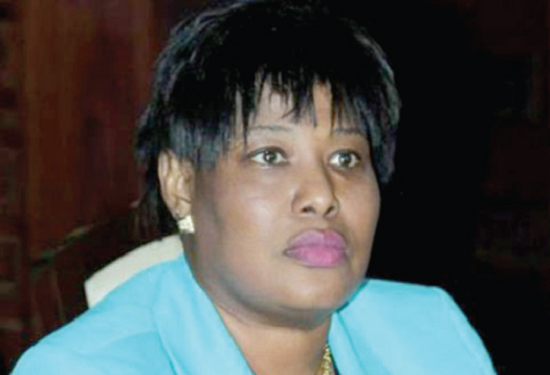
Policy required to make lifeline tariffs effective - Nana Yaa Jantuah
The Public Utilities Regulatory Commission (PURC) has called for policies to ensure that each household gets own electricity metre to enable them to enjoy lifeline tariffs.
The Director of Public Relations and External Affairs at the PURC, Nana Yaa Jantuah, who articulated the suggestion to the GRAPHIC BUSINESS in Accra, maintained that unitising (sharing) electricity metres in a compound house, for instance, often increased the units of power consumed, thereby forcing them out of the lifeline zone, pegged around 0-50 kilowatt per hour (kWh) of electricity consumed.
While the lifeline units attract the lowest tariff of GH¢33.56 (or 67Gp/kWh) when the power consumed is within the zero to 50 units bank. The next range of units, between 51-300 kWh has a higher tariff of GH¢67.33 (, as is the next range of 301-600 kWh which attracts a punitive tariff of GH¢87.38, and so on.
“This lifeline tariff was meant to target the venerable in the society mainly people who live in multiple dwelling place (compound houses) but this has not been realised because of the multiple usage of a single electricity metre,” she added.
Ms Jantuah explained that the realignment corrected the anomalies in the billing cycle as well as ensured that consumers of electricity paid their actual consumption, but for the multiple usage of a metre that had not been realised.
World Bank supports
The PURC’s call articulated in an interview has received a shot in arm from the World Bank which has also released a report this week, mentioning separate metres and sharing of installation costs as part of the solutions Africa can adopt to increase electricity access to more of its citizens.
The PURC is pushing for a collaboration among stakeholders in the power sector to develop a strategic policy to ensure that consumers paid realistic tariffs for electricity.
“We need a policy direction that will strictly mandate owners of multiple dwelling facilities either for commercial or domestic purpose to make provision for separate electricity metres,” the Director of Public Relations and External Affairs at the PURC said.
That, she said, would ensure that consumers of electricity fully benefitted from the tariff realignment introduced by the government in July this year.
She noted that the commission had realised that most consumers did not benefit from the new billing cycle as a result of the multiple usage of a single electricity metre, which increased the units of consumption, hence denying even low income earners, who may not be using a lot of appliances, the opportunity to enjoy lower tariffs. They rather suffer the consequence of high consumption.
Tariff realignment
Both residential and non-residential power consumers are presently benefiting from the realignment programme introduced by the government, depending on the amount of power they consumed.
Per the programme, electricity consumers are paying less if their power consumption is between zero and 50 units.
Therefore, instead of consumers paying the rate of 67Gp per unit for 50 units of power consumed (GH¢33.56), they will now pay a rate of 34Gp per unit for the first 50 units of power (GH¢17).
The reliefs have been applied to extend the life line rate to all residential customers, instead of the previous application to only customers with consumption between zero and 50 units within a month.
In the case of non-residential and industrial customers, the realignment had been applied to the energy charges to reduce the total bill for such consumers.
Background
Last year, the PURC announced 59.2 per cent and 67.2 per cent hikes in electricity and water, respectively.
The hikes, which took effect on December 14, 2015, were greeted with massive public outcry.
They were subsequently condemned by civil society groups, political parties and a cross-section of Ghanaians.
Following that the Consumer Protection Agency (CPA) sued the PURC and four power companies over the new electricity tariffs.
Since the beginning of the year, the public, especially industry players, have raised a series of concerns over what they term as “killer tariffs”.
The situation forced many businesses to reduce their production because they could not foot the bills for electricity.
President John Dramani Mahama, as part of his ‘Accounting to the People’ tour at Madina in Accra, announced that effective July 1, this year, there would be a realignment programme to cushion low-level consumers of electricity.